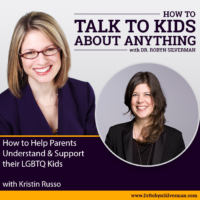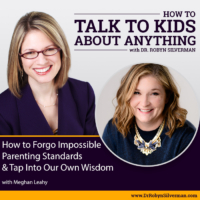Podcast: Play in new window | Download
Subscribe: Apple Podcasts | RSS | More
How the Four Tendencies of Personality Can Help Us Better Understand Our Kids
This podcast will focus on Gretchen Rubin’s new book, The Four Tendencies, and how these personality tendencies can help us to better understand our kids and ourselves. When people are facing expectations, whether outer or inner expectations, there are patterns that emerge that help us to engage more effectively- and ensure that we are not pushing the wrong buttons! Find out all about these four tendencies right here.
Special Guest: Gretchen Rubin
We all have different kinds of kids that we parent, teach or coach. Think about it. Some seem easy as pie and others drive you absolutely bonkers. You give one kid a responsibility or perhaps you help one kid set a goal- and he’s on it. Committed and ready to whatever it takes to follow through. He’s off and running and you don’t need to do anything to help him make it happen. Wow! What a great parent or teacher you must be! Then- you give another kid a responsibility or help him set a goal and he might question you for an hour about why he has to do it this way or that and every who, what, where, when and how it will be done as well. Still other kids may need regular accountability to ensure progress or maybe you even know a few that may resist moving forward no matter what you try. Have I described the kids in your life yet? Why in the world can setting expectations, giving responsibilities or helping kids set goals work so easily for some kids and seem like a lesson in futility for others? Turns out, you aren’t crazy—there’s a reason for this. It comes down to a person’s tendency. And you know what? You have them too.
Gretchen Rubin is the author of several books, including the blockbuster bestsellers Better Than Before and The Happiness Project. Perhaps you’ve seen her on Oprah’s Super Soul Sunday or give her Ted Talk or give expert happiness advice on the Today Show or Good Morning America. She also has a very popular podcast that you may have heard—called Happier with Gretchen Rubin, where she discusses good habits and happiness with her sister Elizabeth Craft. Her new book, The Four Tendencies, reveals a personality framework she’s created that that explains that people fall into four types: Upholders, Questioners, Obligers, and Rebels. And we are going to talk all about it today.
The podcast provides:
- Tendencies: What is your personality tendency? What is your child’s tendency? (Upholders, Questioners, Obligers and Rebels)
- How knowing our own tendency can help us manage ourselves better.
- Tips on how to help kids with different tendencies thrive.
- Scripts on how to talk to kids with the four different tendencies.
Important Messages:
- Many systems that we have in place may work for certain “tendencies” but not for others. There are ways to adjust the systems so that they will better motivate a child who has a different personality tendency.
- Upholders are pretty easy. They’re going to feed the fish. They’re going to hand in the report. They’re going to remember to pack their gym clothes. However, they can be rigid when they are asked to change their system or challenge expectations.
- Questioners can seem insubordinate. They ask many questions. They need robust explanations. They can get analysis paralysis, at times, when they need more and more information.
- Acknowledgment can be a form of accountability for some people—especially for obligers.
- Obliger children need outer accountability for anything that’s an inner aim.
- Rebel children need to be reminded of their identity and what they truly want. When we remind them of who they “want” to be. Also helpful? Information, consequences and choices.
- When teachers give choices, they help kids with different tendencies to make the best choices are for them.
- With upholders- be crystal clear about the expectation. With questioners, explain the reasons for the expectation. With obligers- give outer accountability. With rebels- remind them of their identity and give them the information, consequences and choice.
- When you realize that other people don’t see the world in the same way as you, then you can have a clot more understanding and compassion—and help other people!
- The tendencies are just one narrow piece of personality. If you put a group of just one tendency together, they may all seem quite different from another.
- Each tendency has a strength.
- Think of your tendency and the tendencies of others when you are working with others so that you can set things up to be more successful.
Notable Quotables:
- “When you know yourself and you know your tendency, you can figure out how to set things up so you can get where you want. We can all ‘get there’ but we’re going to take very different paths and it’s easier to figure out what that path may be when you know your tendency.”
- “Upholders are pretty easy. They’re going to feed the fish. They’re going to hand in the report. They’re going to remember to pack their gym clothes.
- “If someone needs accountability, don’t tell them that they don’t need it. Help them get it.”
- “There’s something in our culture right now that says that everybody should be inner-motivated all the time…obliger children need outer accountability for anything that’s an inner aim.”
- “Many rebels have told me that they remember the specific moment in childhood when they realized, “nobody can make me do it.’”
- “One thing that can work well with children and adults is information, consequences and choices. You give them the information they need to be informed, you tell them the consequences of their decision and then you let them choose without nagging, supervision and monitoring.”
- “For teachers, if you are giving an assignment, you want to be very clear about what the expectations are and when it’s due, you want to give explanations of why you are making this assignment and what it’s meant to achieve and give choices on how people execute. That way, you are going to reach the upholders, the questioners, the obligers and rebels because everyone is going to have their button pushed for them.
- “With upholders, be crystal clear about the expectation. With questioners, explain the reasons for the expectation. With obligers- give outer accountability. With rebels- remind them of their identity and give them the information, consequences and choices.”
- “A lot of times people are searching for ‘what’s the best way? What’s the right answer?’ There is no one best way because people are different from each other!”
- “Every tendency has its strength.”
Resources:
- The Four Tendencies: Presale available right now! http://gretchenrubin.com/books/the-four-tendencies/buy-the-book/
- The Four Tendencies Quiz: http://www.surveygizmo.com/s3/3163256/Gretchen-Rubin-s-Quiz-The-Four-Tendencies-Fall2016
- Betterapp https://www.betterapp.us/
- www.GretchenRubin.com
- The Happiness Project http://gretchenrubin.com/books/the-happiness-project/about-the-book/
- Better than Before http://gretchenrubin.com/books/before-after/before-after/









